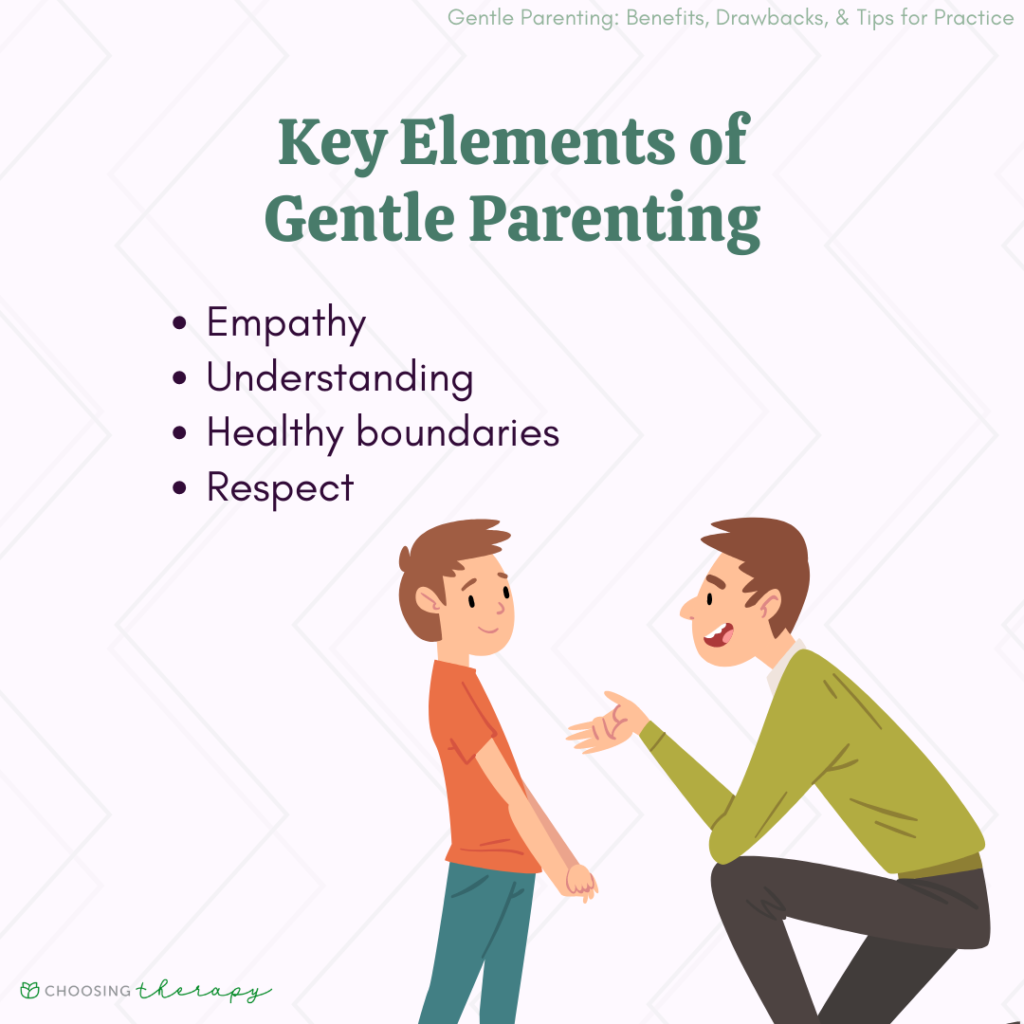Hey there, fellow parents and caregivers! If you’ve been scrolling through social media lately, you’ve probably come across the term “gentle parenting.”
It’s been making waves on platforms like TikTok and Instagram, with the hashtag #gentleparenting racking up billions of views. But what exactly is gentle parenting, and is it the right approach for your family?
Let’s dive in and explore this parenting philosophy together.

ben-white-JJ9irt1OZmI-unsplash.jpg
What is Gentle Parenting(GP)?
At its core, GP is an approach that emphasizes empathy, understanding, and respect in the parent-child relationship.
Sarah Ockwell-Smith, author of “The Gentle Parenting Book,” sums it up nicely with these three words: empathy, understanding, and respect.
This parenting style encourages parents to:
- Acknowledge and validate their child’s feelings
- Understand the motivations behind challenging behaviors
- Maintain firm boundaries while offering choices
- Use positive discipline methods instead of punishments or threats
It’s important to note that GP isn’t about being permissive or letting your child run the show.
Instead, it’s about finding a balance between nurturing your child’s emotional needs and setting clear, age-appropriate expectations.
The Appeal of Gentle Parenting
So, why has this philosophy gained such popularity?
Many parents are drawn to this approach because it:
- Focuses on building strong emotional connections with children
- Encourages the development of emotional intelligence
- Aims to create a respectful and nurturing family environment
- Moves away from authoritarian parenting styles that may feel outdated or harsh
Challenges and Criticisms
Like any parenting approach, gentle nurturing isn’t without its challenges. Some common criticisms include:
- It can be exhausting: Constantly managing your own emotions while validating your child’s feelings can be mentally and emotionally draining.
- It may seem too lenient: Some critics argue that GP can lead to a lack of discipline or structure.
- It’s hard to maintain consistency: In real-life situations, it can be challenging to always respond calmly and empathetically.
- It might not work for every child: Some children may need more structure or different approaches based on their individual needs.
Finding Balance: GP in Practice
If you’re intrigued by GP but feeling overwhelmed, don’t worry! Here are some practical tips to help you incorporate gentle parenting principles into your daily life:
- Practice empathy: Try to see situations from your child’s perspective. Remember, their brains are still developing, and what seems trivial to us might be a big deal to them.
- Set clear boundaries: GP doesn’t mean no rules. Establish clear, age-appropriate boundaries and explain the reasons behind them.
- Offer choices: Instead of giving orders, try offering limited choices. For example, “Would you like to put on your shoes or shall I help you?”
- Use positive discipline: Focus on teaching and guiding rather than punishing. Help your child understand the consequences of their actions.
- Manage your own emotions: It’s okay to have big feelings as a parent. Model healthy emotional regulation by taking deep breaths or stepping away when you need to.
- Be flexible: Remember that no parenting style is one-size-fits-all. Adapt your approach based on your child’s needs and your family’s unique dynamics.
Wrapping Up
Gentle parenting isn’t about being perfect – it’s about striving to create a respectful, empathetic relationship with your child.
It’s okay to have off days or moments when you don’t respond as calmly as you’d like. The key is to keep learning, growing, and trying your best.
Remember, the goal (of parenting in general) is to raise happy, well-adjusted children who feel loved, respected, and secure. Whether you fully embrace GP or just incorporate some of its principles, the most important thing is finding an approach that works for your family.
So, what do you think about this parenting philosophy?
Have you tried it, or are you curious to give it a go? Share your thoughts and experiences in the comments below – let’s learn from each other and support one another on this wild, wonderful parenting journey!
Join us to receive more articles like this, or visit our Media site for more reading:




